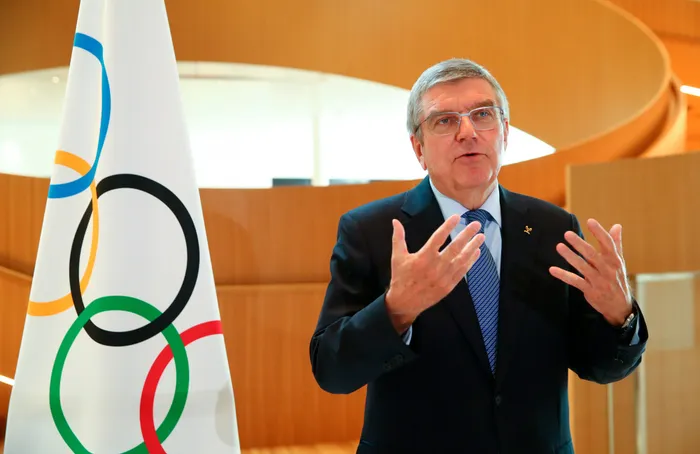IOC boss Bach's leadership questioned over Tokyo Games

Thomas Bach has a tough job as IOC president and is used to being criticized from many sides. But his leadership has been seriously questioned after he long hesitated on the Tokyo Games amid the coronavirus crisis. Photo: Denis Balibouse/Keystone via AP/pool Thomas Bach has a tough job as IOC president and is used to being criticized from many sides. But his leadership has been seriously questioned after he long hesitated on the Tokyo Games amid the coronavirus crisis. Photo: Denis Balibouse/Keystone via AP/pool
FRANKFURT – Thomas Bach is pretty much used to criticism from
various fronts as president of the International Olympic Committee
(IOC) but his handling of the coronavirus crisis has added a new
dimension.
No nation or athlete had quit over the IOC's highly controversial
handling of the Russian doping affair at the 2016 Games in Rio and
2018 Winter Olympics in Pyeongchang.
But this time around Bach's leadership was bluntly questioned as
famous athletes lambasted the German, Canada and Australia said they
wouldn't send athletes to Tokyo 2020, and German athletes' spokesman
Max Hartung also said he wouldn't compete, by the time the IOC and
Japanese organizers accepted the inevitable and postponed the Games
till 2021.
It is likely that the criticism from the athletes stung Bach, a 1976
fencing gold medallist for West Germany who was deeply upset when his
country joined the boycott of the 1980 Games in Moscow.
IOC member Hayley Wickenheiser, a four-time ice hockey gold medallist
from Canada, tweeted that pressing on without considering other
measures was "insensitive and irresponsible." British rowing great
Matthew Pinsent suggested staging the Games was "tone deaf."
Until a week ago the 66-year-old lawyer Bach insisted that Tokyo
would take place as planned. Then on Sunday a four-week decision
period was announced while the US swim and athletics bodies had
already joined the choir calling for postponement, which however was
never explicitly mentioned as an option. But it was too late.
Former American sprint great Michael Johnson had urged Bach to
"communicate the process to the athletes!" And Bach's successor as
German Olympic supremo, Alfons Hoermann, also said that "clear
communication and decisive action" are what it takes during a crisis.
Dagmar Freitag, chair of Germany's parliamentary sports commission,
was blunt.
"Not for the first time in his term Thomas Bach has raised doubts
about his leadership skills," Freitag told Friday's Mittelbayerische
Zeitung.
Freitag said that his hesitation now as well as his lack of harsh
action, a blanket ban, on Russia "will both in retrospect be
inseparably remembered with Bach's term in office."
Bach, an IOC member since 1991, stands for election for a final
four-term next year after the expiration of his first mandate over
eight years, and that IOC ballot will show whether he has also lost
credit within the Olympic organization.
"Next year there are elections at the IOC, then we will see how it
continues," German athletics chief Juergen Kessing said, also
insisting that "leadership has a different look."
Bach, for his part, defended his insistence on staging the Games amid
the growing health crisis - including asking athletes to continue
training when facilities were already closed in locked down countries
- because they were still four months away.
In a conference call Wednesday, he spoke of a quickly deteriorating
situation over the past days, including a "very alarming" declaration
from the World Health Organization, and had no regrets because the
Games weren't cancelled outright.
"No, because this was the commitment and is the commitment to our
Japanese partners. We could have decided on a cancellation our own.
But for a postponement we needed the full commitment of our Japanese
partners," he said.
"This is what we were looking for with our approach and this is what
we achieved yesterday, making it possible that the Olympic Games
Tokyo 2020 are happening and did not have to be cancelled.
"We can give athletes the hope and assurance that their Olympic dream
can still come true, even with a delay," he said.